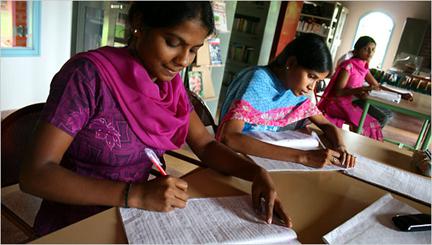Research at Adivasi Academy
Find about research and studies at Adivasi Academy
Community Ethnographies
Most descriptions of Adivasi communities have so far been shaped by colonial ethnographic sources and methods. Consequently, there is a lack of adequate information and understanding regarding the social organization, cultural conventions, agricultural practices and economic perspectives of Adivasi communities. More particularly, there is very limited knowledge about ‘Primitive Vulnerable Tribes’, pastoral and coastal communities. Consequently, development planning directed towards these communities has not been as effective as desired.
Considering the gap between development plans and the social practices of Adivasi communities, the Adivasi Academy initiated a novel study series, named ‘Insider Ethnography’. The Ethnographies are written by ethnographers from within the community, who are provided research orientation by the Academy. The ethnographies contain community descriptions covering a wide range of themes as location, occupation, customs, rituals and stories of origin; kinds of beliefs, familial and social aspects; forms of expressions, notions of well-being, transition into modernity and globalization and the nature and dynamics of change.
Bhasha has so far prepared 90 Ethnographies, mainly covering communities in Gujarat, Maharashtra, Madhya Pradesh and Rajasthan. The ethnographies are prepared in Gujarati, Marathi and Hindi. Several ethnographies are available at [bhasha]
Study on Outward Migration
With the support of the Centre for Multi-disciplinary Development Research, Dharwad, Bhasha Centre completeda research study on ‘Migration, Its Impact and Modernity’ in Gujarat. Under the research study, in-depth discussions and personal interviews were conducted with migrants on the issues of reasons, patterns and impact of migration. The field interviews covered tribal communities in Sabarkantha, Banaskatha, Chhotadudepur, Dahod, Tapi and Narmada districts and coastal communities in Valsad district. The research study undertaken by CMDR with the support of ICSSR, Delhi, is part of a larger project to assess the extent of distress migration and determining the relation between migration and modernity in Uttarakhand, Karnataka, Maharashtra and Gujarat. As part of the study, Bhasha also collected Research Studies and Publications on migration in Gujarat. These are available at the Library of CMDR.
Language Tools and Database for Schooling

The primary difficulty in providing tribal population access to quality education, arises from the language situation. In India, most states were created on linguistic basis, and the language of the state became the natural medium of schooling in the respective states. The Census of India lists nearly 200 ‘other’ languages with a population of 10,000 or above. Many of these ‘other’ languages are spoken by Adivasi communities. When the teachers appointed to schools in the tribal villages are from outside the respective speech community, it leads to a situation where the teacher and the child cannot communicate.
The Academy noticed this situation while running non-formal schools in tribal villages. We decided to create ‘Pictorial Glossaries’ in tribal and nomadic languages for several communities to help the school teachers in bridging the communication gaps between them and their pupils. Bhasha has created Pictorial Glossaries in 12 Adivasi and 5 nomadic languages of Gujarat. We hope this will bring you to Tejgadh to enjoy the experience personally! Several of the Adivasi language glossaries have been availed by the Gujarat Sarva Shiksha Abhiyan for use in tribal area schools.
Ms. Lina Khan, an American India Foundation’s Clinton Fellow with Bhasha during 2017-18 undertook a study of Bhasha’s multilingual bridge schooling programme and particularly the glossaries and how they have been useful to the schools. She found that the Pictorial Glossaries are an extremely effective tool for teachers in Grades 1 and 2 and recommends that orientation programmes should be held for teachers in the use of the glossaries.
The glossaries are not a one-time product and hold scope to be innovatively modified and expanded to serve the needs of teachers and children. Bhasha prepares new glossaries from time to time as well as holds workshops for other organisations/educationists who wish to develop glossaries in the languages spoken in their area.
The glossaries benefit the educational empowerment of the tribal communities along with safeguarding the language stock of Adivasi languages many of which are in vulnerable state in the face of deforestation, migration and modernisation.